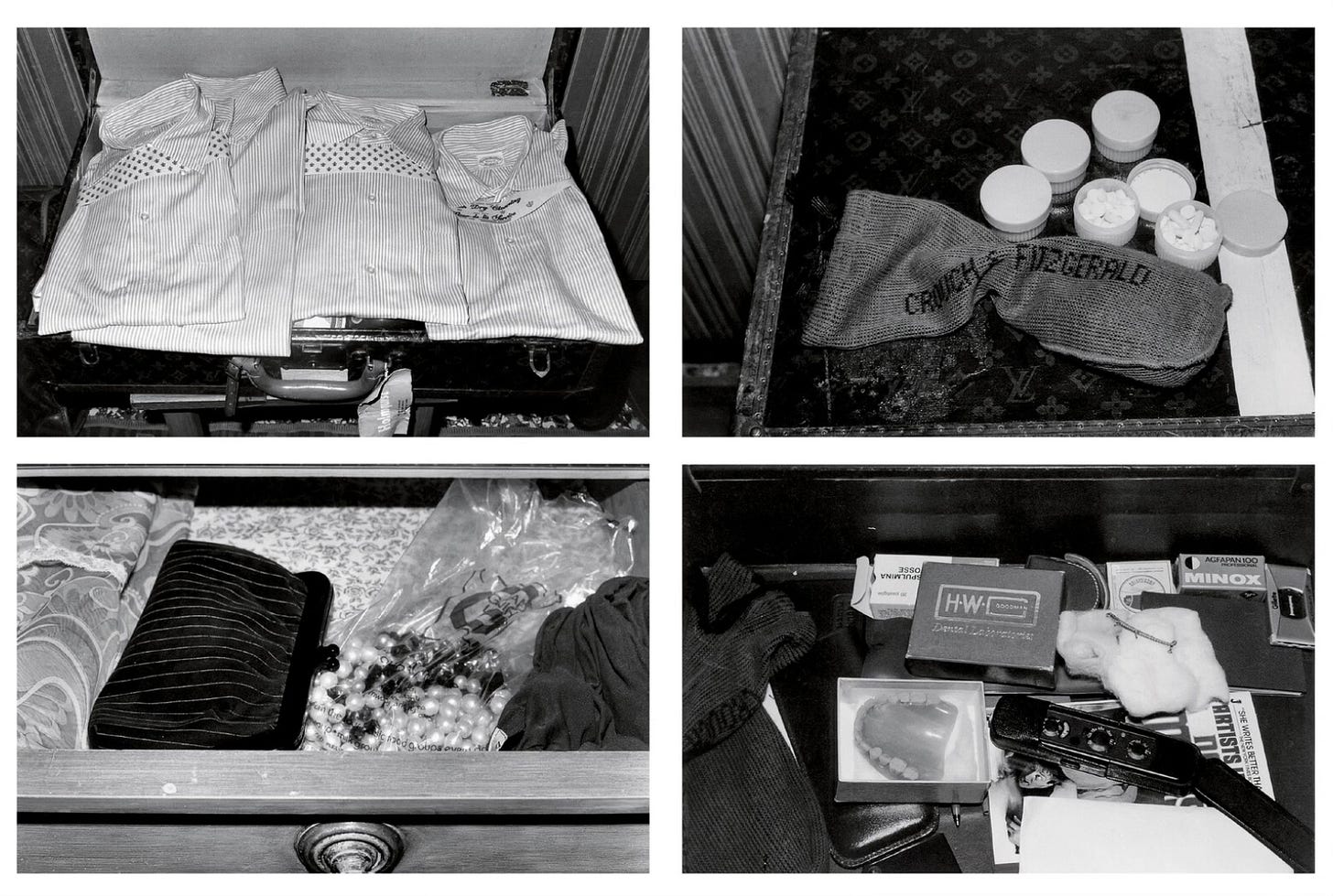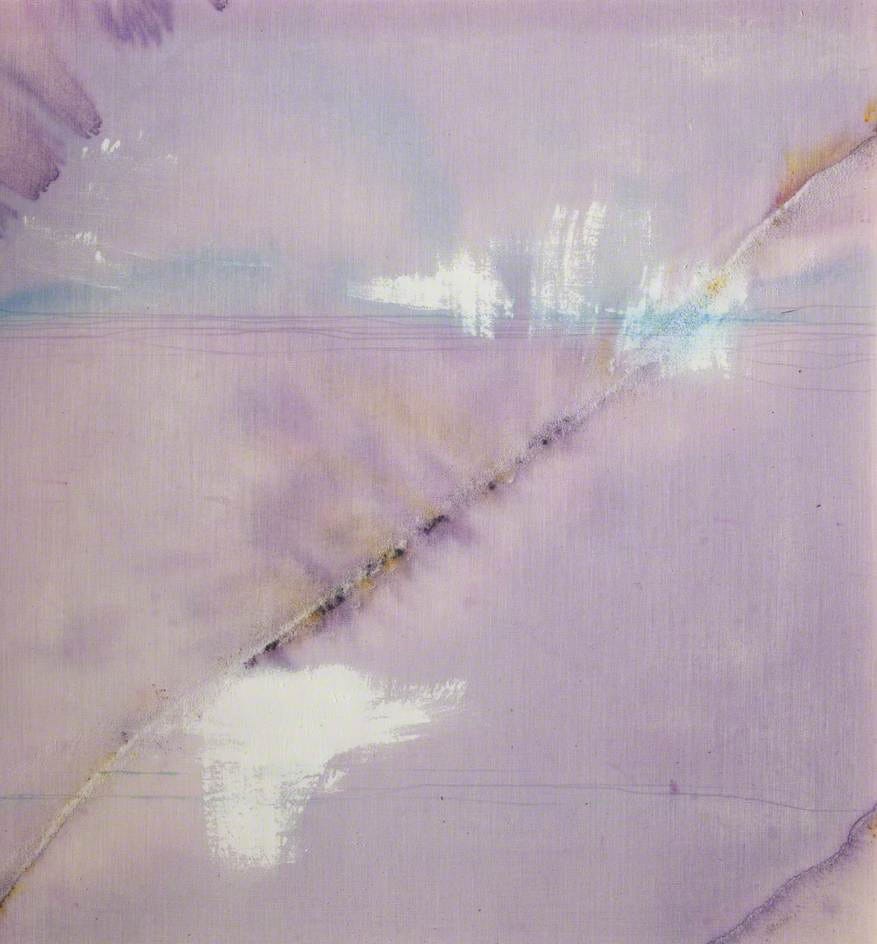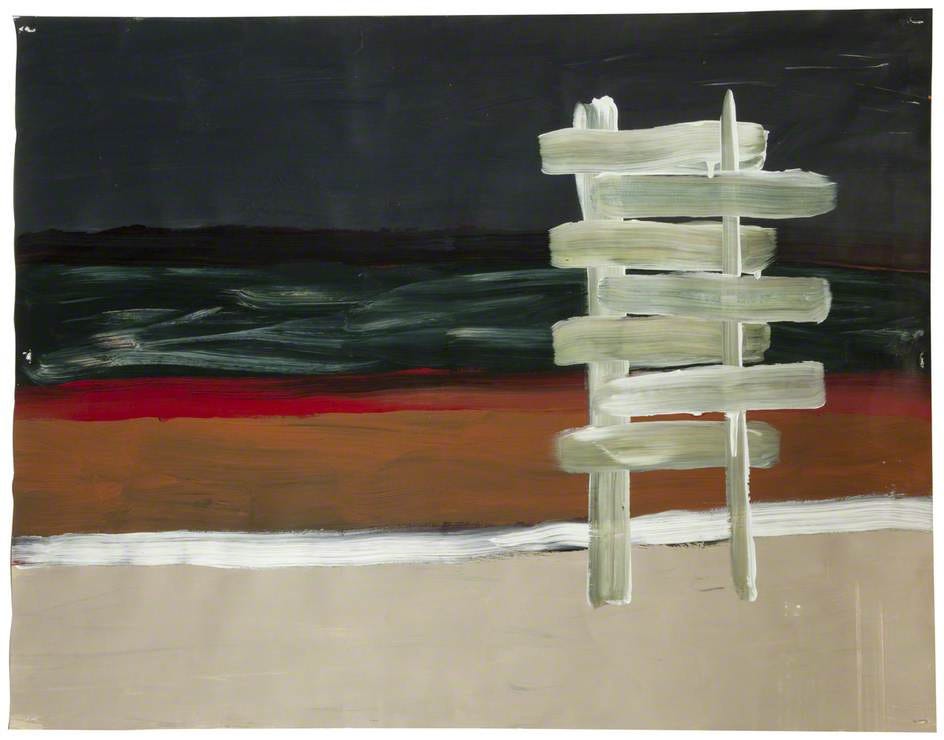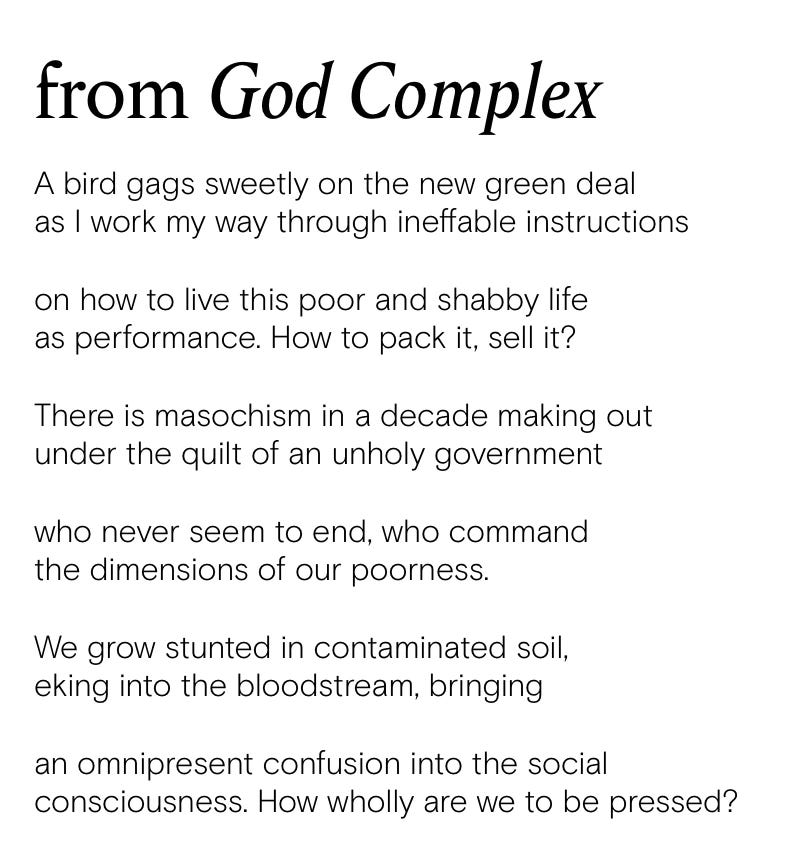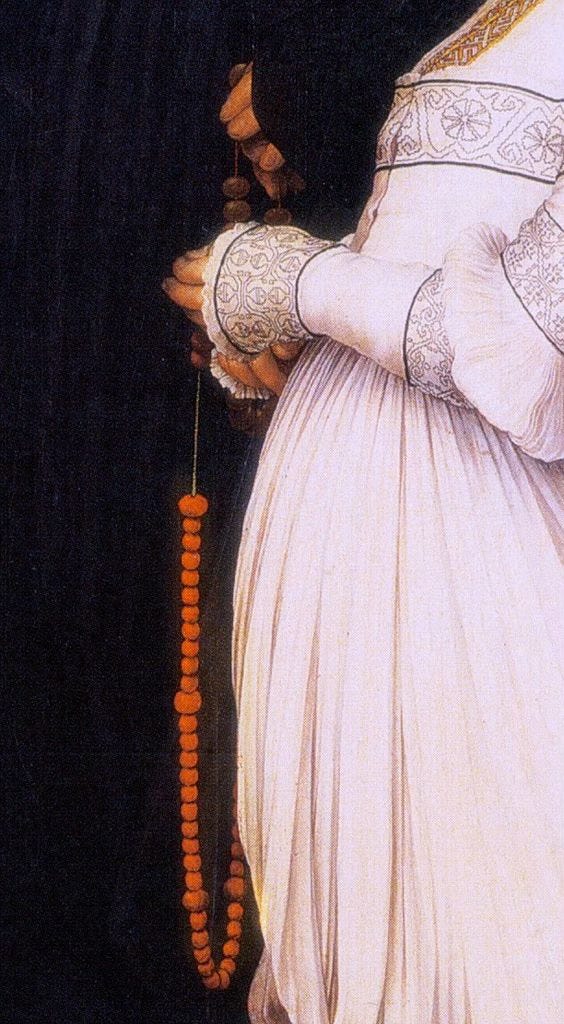pinch: january thoughts
Hello, happy new year!
I keep thinking that if I just finish this next thing, I’ll be free to write what I like. I have been thinking this since the start of November, Will’s birthday, and it occurs to me that this is two months ago now. More than two months ago.
The words are never finished. There are always more words. And they aren’t always the words I want to be writing. Perhaps if I had the time, I’d write only about reading and impositions and Sophie Calle (we all know that the more frightening thing is, of course, that I would not.)
Sophie Calle, detail from Room 28, The Hotel (1981)
Little pinch thoughts have been sitting in my notes app; I’ve been adding to them, scraps, since the last newsletter. There’s a bit about the Kelmscott Chaucer; you’ll read it below. I’m not sure what spurred it. I had a dream about a breached submarine and basking sharks covered in sores. One note just says “crispy martins”, for some reason.
Here are some of those notes:
It has been a busy end to the year. And, at work at least, I’ve been in my hater era (glad tidings of comfort and joy generally though, dw).
My two-star review of the new Naomi Alderman was in the paper, under the headline “The future? It’s so passé”. That sounds a lot more Mitford than the piece really is.
To my great horror, a story I wrote about having a breakdown while skiing for the first time, alone, was also in print. TLDR: everyone in the group thought I was called Ally because the instructor kept yelling allez at me. The editors chose to put in a catastrophically unflattering photo of me, nervously clutching ski poles in a blizzard. At least they didn’t feature the thousands of images of me crying, Mary Beard style, on FaceTime to everyone I know.
Is there anything else? I went on an utterly bizarre “safari” in Norfolk, saw quite a lot of deer, was in a boat crash. Wrote about that, too. And I profiled some very lovely street performers about the future of Covent Garden. A leather-waistcoated, dark-eyed knife-juggler thinks there’s a conspiracy afoot.
Joanne Millea, Rose Lines (date unknown)
In July, my parents, my sister, Will and I saw a squirrel do a flip – I mean, really, a flip –out of a tree onto a rabbit's back. This was in Durham. They tumbled around together and neither liked it.
In a newsletter, a publication writes that “bobbins” is Lancashire slang for something meaningless, origin unknown. I have never heard this before but that doesn’t occur to me until later. I read it, and it annoys me because the origin must be, I think, from the mills – a bobbin is a wooden spool to wind your cotton on, before it goes into the shuttle.
Albert Joseph Moore, Pomegranates (1866)
It annoys me because I don’t think this information should be hard to find. Or, at least, it shouldn’t be hard for a journalist with time. I realise that I may only know it because I’m from Lancashire; the writer probably isn’t. They probably had half a day to write the newsletter, and aren’t paid enough anyway, and search engines are increasingly difficult to use and feel like digging through a poorly-labelled archive, the librarians long gone home.
I will have made mistakes – not that it’s a mistake, but an overlooking – like this before, for the same reasons. I wish there was the time, and the resource, and the care. It’s not just human error, it’s the material conditions.
The newsletter in question isn’t one that looks at words. The section on bobbins was a scrap: just the word, the meaning, the unknown origin. Looking at it now, though – unspooling it with double interest – I think bobbins as nothing is actually very curious. The bobbin held the bits of thread that, after weaving, were discarded, only by virtue of being at the end. Fine, so they are nothing. Although the nothing in question there is the thread, not the bobbin.
Lubaina Himid, Weave (1994)
The bobbin is crucial, machinery. It makes the process quicker without automating it. Weaving could happen without the bobbin, although it rarely does. So maybe calling a bobbin nothing is ironic. Or maybe calling it nothing is to say that the people are the thing; the tool worthless until it is in the hands of a person.
Still, bobbin is a silly word. You bob in your thread. Bob the thread into the shuttle.
(Here’s my worry – I’ll wind thoughts like this back and forth like this forever and never make the whole).
End of year reading
The Topeka School, Ben Lerner – a very lovely gift. Obviously, consciously, clever. It was very good, I think, and I particularly liked this about a suspended snooker ball:
“Long before the freshman called him the customary names, before he’d taken it from the corner pocket, felt its weight, the cool and smoothness of the resin, before he’d hurled it into the crowded darkness — the cue ball was hanging in the air, rotating slowly. Like the moon, it had been there all his life.”
Ingird Pollard, Untitled (1988)
Winter Animals, Ashani Lewis – this I read for a review. It is about a cult, essentially, of Oxford grads – please god no – who start a phalanstery based on the teaching of Charles Fourier (some eccentric utopian proto-socialist). That cult is also a skiing cult. It references Atomic Habits and it also talks quite explicitly about theories of tragedy.
Faber shared this, from God Complex by Rachael Allen:
End of year viewing
I saw two films as part of the Prince Charles cinema’s Neo-noir series: Blow Out and Night Moves.
Blow Out, a film from 1981, is about a sound engineer (John Travolta) who accidentally records a crime as it happens. It’s peculiar and stylised; in the film, this crime reveals a conspiracy, but in modern terms it’s not conspiratorial at all and seems sort of quaintly about The Man. The attention to sound is delightful. Saw it on 35mm that was, I think, colour-corrected or stored wrongly, meaning it was all bathed in a very enigmatic red. Got me thinking about how I want a Kelmscott Chaucer tattoo (real ones know I can’t for cardiac reasons, but a girl can dream).
There is, still – more than ever – a need to donate to the Gaza Emergency Appeal. This can’t go on. My friend Emily wrote well about the role poetry might have in this conflict – you can read that here.
Until next time x
Detail from Darmstadt Madonna, Hans Holbein the Younger (1526)




